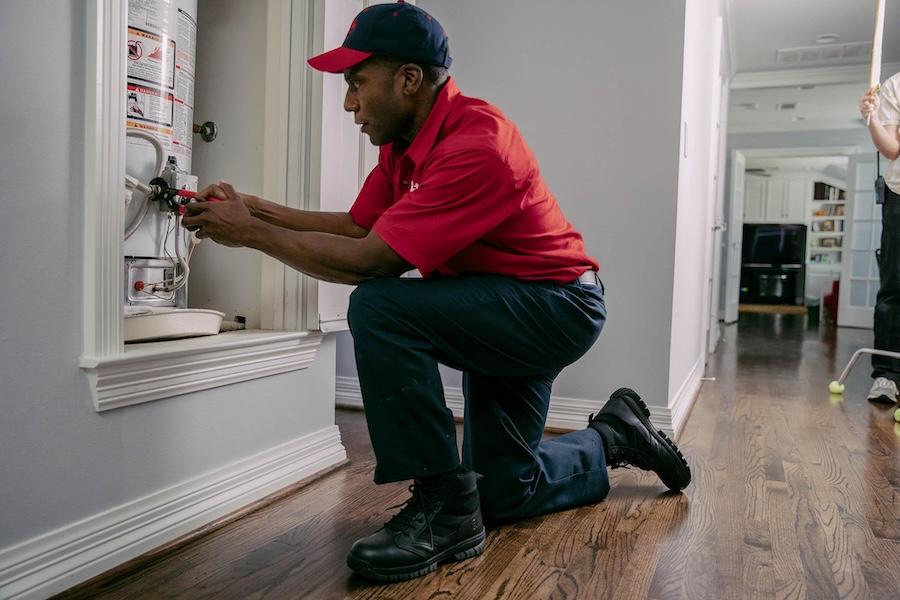Menu
Call This Saturday to Get $50 Off
Do You Need a Plumber in Dallas, TX? Call us Now to Get $50 OFF
4.8 / 5 Ratings based on 1384 reviews Great Plumbers, Great Reviews
Call This Saturday to Get $50 Off
Perhaps you’re looking to install an efficient water heater in your new home for the first time, or maybe it’s time for a water heater replacement. There are two main options to choose from—electric water heaters and gas water heaters. It’s important to understand how these two types of water heaters work, as well as their pros and cons.

Mr. Rooter Plumbing is a reputable plumbing company that offers a full range of professional water heater services. When you’re in need of water heater installation in your home, restaurant, or business premises, we are the plumbing company you can rely on. In this article, we will compare electric water heaters to gas water heaters to help you make an informed decision.
An electric heating element, submerged in the water tank, uses electricity to directly heat the water. For an electric-powered tankless water heater, the incoming cold water passes through a heat exchanger, where it's heated by high-powered electric coils. A thermostat regulates the water temperature. When the temperature drops below a set point, the thermostat activates the heating element. Once the desired temperature is reached, the thermostat shuts it off.
Pros
Cons
A gas burner combusts natural gas, generating heat that transfers to the surrounding water tank or heating element in tankless units. The heat exchanger separates the hot combustion gases from the water. The exhaust gases produced by the burning gas are vented outside the home through a flue pipe. Regular maintenance by a professional plumbing service is necessary to ensure safe and efficient operation.
Pros
Cons
Is it time to switch to a tankless water heater? Is your current water heater failing, and you’re considering a water heater replacement? Mr. Rooter Plumbing is here to help you with all of your water heater needs. We are a trusted plumbing service that you can count on for top-quality water heater services.
The DIY spirit in the U.S. is more alive than ever, with…
Read More+The drainage system in your home is vital for maintaining convenience and the well-being of…
Read More+Leaks are the most common plumbing problems in residential and commercial buildings. However, minor…
Read More+Did you turn on your water, but it had a weak flow…
Read More+